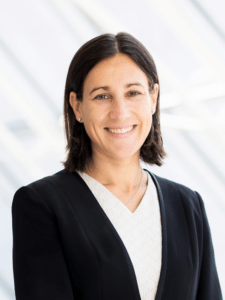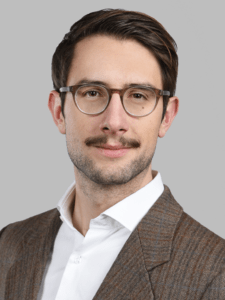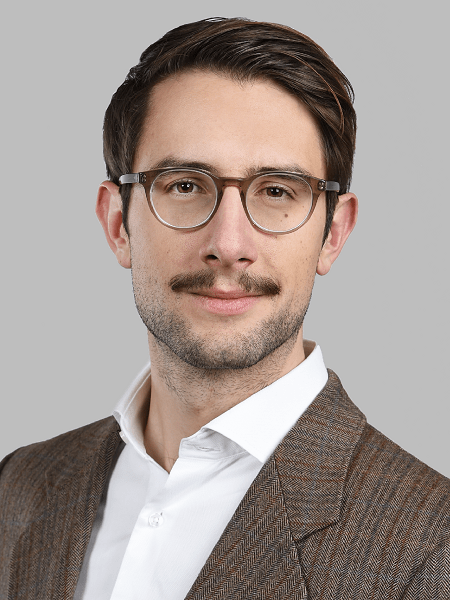Competence Center Circular Economy
Circular Economy as alternative solution for a sustainable and resilient economy
Sustainability is not a megatrend, sustainability is an existential challenge. Planetary boundaries have already been massively exceeded, tipping points reached, and despite many commitments to sustainable transformation, there is a lack of forward-looking breakthroughs. Our Competence Center focuses on the Circular Economy (CE) as an alternative solution to enable a way out of resource waste and fossil dependency. The main focus is on promoting excellent research and providing high-quality teaching to inspire and empower future generations of scientists and professionals in the field of circular economy. At the same time, we help companies develop and implement circular ecosystems to proactively respond to environmental challenges and create sustainable value for society, nature and the company itself.
At our core, we address questions such as:
- How can companies take responsibility and minimize the negative impacts of resource use? How can growth and resource consumption be decoupled?
- How to successfully and profitably establish a circular economy through innovative business models? How to best collaborate with partners in the circular ecosystem?
- What does Value Creation and Value Appropriation mean in a circular economy?
Circular Lab
Since June 2023, we have been co-leading the “Circular Lab” project, which is funded by the EU’s Interreg Alpenrhein-Bodensee-Hochrhein program and the federal government’s New Regional Policy. Together with five other universities – the University of Applied Sciences of Eastern Switzerland, the Zurich University of Applied Sciences ZHAW, the University of Applied Sciences Vorarlberg, the Albstadt-Sigmaringen University of Applied Sciences as well as the Baden-Württemberg Cooperative State University – and more than 30 practice partners, we pursue the goal of making a significant contribution to the realization of the circular economy in the textile industry as well as the agricultural and food industry in the Lake Constance region. For this purpose, the partners bring in different expertise – from information systems to business model innovation to consumer research and technical product development. The project is open to other partners from the relevant industries who want to contribute to the implementation of the circular economy.
For more information on the Lab and current research results, please visit the project website.
Our offerings for industry partners
CE-LEARN: Custom CE Teaching for your Company
CE-BUILD: Jointly building your Circular Ecosystem
CE-CONNECT: The CE Roundtable for Executives
CE-SHOWCASE: The CE Summit
Testimonials

«Re-innovating your own business model is already very difficult. If – as in the case of circular ecosystems – not only one’s own but the business models of several involved partner companies have to be adapted, this task becomes even more challenging. The broad toolset of the HSG Competence Center for Circular Economy and Business Model Innovation helped us a lot to identify the necessary key projects in a short time and to make sure that our envisioned solution really creates continuity and added value.»
Oliver Brunschwiler, Ex-CEO and Board Member FREITAG
«The nexus between the circular economy and the insurance industry is not obvious at first glance. This made the customized training provided by the HSG team all the more valuable, as it allowed our young talents to see what role the insurance industry can play on the path to a circular economy. With the help of the Circular Economy Pattern Cards, participants were able to quickly apply the basic CE principles they had learned to Zurich’s existing business model in a structured way and develop exciting ideas for business model innovations in a very short time.»
Cassie Galloway, Head of Strategic Workforce Transformation Zurich Insurance Group


«The HSG team captured the genesis of our innovative Cyclon circular running shoe in a teaching case published as part of the prestigious Harvard Business School Teaching Case series. We are extremely proud that our experience is now being used as a practical example of circular business model innovation by students at Harvard Business School, the University of St. Gallen and around the world.»
Francois-Xavier Dosne, Head of Innovation Business Strategy at On Running
Selection of previous company collaborations











Our Team
Karolin Frankenberger is Professor of Strategic Management and Innovation at the University of St. Gallen, where she is also Director of the Institute of Management & Strategy (IoMS-HSG) and Academic Director of the Executive MBA. Prior to her academic career, Karolin worked at McKinsey & Company for seven years. Her research, which focuses on business model innovation, ecosystems, circular economy, and transformation, has received multiple awards and regularly appears in top-tier academic and practitioner journals. Karolin is also the founder of a spin-off, an internationally renowned keynote speaker, and supports executives from numerous industries worldwide in their strategy and innovation challenges
Fabian Takacs is a postdoctoral researcher and project manager at the Institute of Management & Strategy (IoMS-HSG). His research focuses on the concepts of sustainable transformation, circular economy and business model innovation. At the IoMS Competence Center for Circular Economy, he is building the interdisciplinary and practice-oriented “Circular Lab”, a platform for the development of circular & sustainable solutions in the Lake Constance region. He is co-developer of the Circular Navigator, a practice-oriented methodology for creating circular business models, which he has already used to support various companies on their way to more sustainability. In 2020, he won the HSG Impact Award for impactful research with societal impact.



